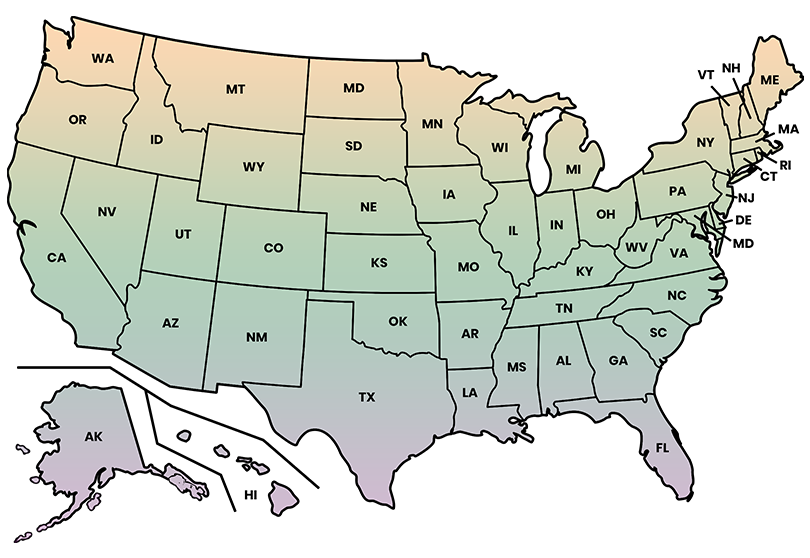Welcome to our comprehensive guide on overtime pay. This resource is designed to help both employers and employees, providing clear guidance on correctly calculating and displaying overtime pay on pay stubs. Our goal is to ensure compliance with legal standards and promote fair compensation practices.
- What is Overtime Pay?
- Overtime Pay Laws
- Calculating Overtime Pay
- Key Overtime Pay Elements on Paystubs
- Exempt vs. Non-Exempt Employees
- Employee Rights and Awareness
What is Overtime Pay?
Overtime pay is the additional compensation provided to employees who work more than the standard hours defined by law, typically over 40 hours per week. Understanding overtime pay is crucial for maintaining fair labor practices and compliance with employment laws.
Overtime Pay Laws
Federal Laws
Under the Fair Labor Standards Act (FLSA), non-exempt employees must receive overtime pay for hours worked over 40 in a workweek at a rate not less than time and one-half their regular rates of pay.
State Laws
Overtime laws can differ significantly from state to state, often providing greater protections or imposing additional requirements beyond federal law. Employers are obligated to comply with both federal and state regulations where they apply.
Examples of State Overtime Laws
Double Time Pay: Some states require double time pay for hours worked beyond a certain threshold in a single day or week, often after 12 hours in a day or 8 hours on the seventh consecutive day of work in a workweek.
Daily Overtime: In states with daily overtime laws, employees may be entitled to overtime pay for hours worked beyond a certain number in a single workday, in addition to weekly overtime.
Below is the information of overtime laws for each state in 2024:
2024 Overtime Laws by State
| State | 2024 Overtime pay law |
|---|---|
| Alabama | Follows federal overtime laws |
| Alaska | Requires overtime pay for hours worked over 8 per day or 40 per week |
| Arizona | Follows federal overtime laws |
| Arkansas | Requires overtime pay for hours worked over 40 per week |
| California | Requires overtime pay for hours worked over 8 per day or 40 per week, and double time for hours worked over 12 per day |
| Colorado | Requires overtime pay for hours worked over 12 per day, 12 consecutive hours, or 40 per week |
| Connecticut | Requires overtime pay for hours worked over 40 per week |
| Delaware | Follows federal overtime laws |
| Florida | Follows federal overtime laws |
| Georgia | Follows federal overtime laws |
| Hawaii | Requires overtime pay for hours worked over 40 per week |
| Idaho | Follows federal overtime laws |
| Illinois | Requires overtime pay for hours worked over 40 per week |
| Indiana | Requires overtime pay for hours worked over 40 per week |
| Iowa | Follows federal overtime lawss |
| Kansas | Follows federal overtime laws |
| Kentucky | Requires overtime pay for hours worked over 40 per week |
| Louisiana | Follows federal overtime laws |
| Maine | Requires overtime pay for hours worked over 40 per week |
| Maryland | Requires overtime pay for hours worked over 40 per week |
| Massachusetts | Requires overtime pay for hours worked over 40 per week |
| Michigan | Requires overtime pay for hours worked over 40 per week |
| Minnesota | Requires overtime pay for hours worked over 48 per week |
| Mississippi | Follows federal overtime laws |
| Missouri | Requires overtime pay for hours worked over 40 per week |
| Montana | Requires overtime pay for hours worked over 40 per week |
| Nebraska | Follows federal overtime laws |
| Nevada | Requires overtime pay for hours worked over 8 per day or 40 per week, with additional provisions for certain industries |
| New Hampshire | Follows federal overtime laws |
| New Jersey | Requires overtime pay for hours worked over 40 per week |
| New Mexico | Requires overtime pay for hours worked over 40 per week |
| New York | Requires overtime pay for hours worked over 40 per week, with additional requirements for certain industries |
| North Carolina | Requires overtime pay for hours worked over 40 per week |
| North Dakota | Requires overtime pay for hours worked over 40 per week |
| Ohio | Requires overtime pay for hours worked over 40 per week |
| Oklahoma | Follows federal overtime laws |
| Oregon | Requires overtime pay for hours worked over 40 per week, with daily overtime for certain industries |
| Pennsylvania | Requires overtime pay for hours worked over 40 per week |
| Rhode Island | Requires overtime pay for hours worked over 40 per week |
| South Carolina | Follows federal overtime laws |
| South Dakota | Follows federal overtime laws |
| Tennessee | Follows federal overtime laws |
| Texas | Follows federal overtime laws |
| Utah | Follows federal overtime laws |
| Vermont | Requires overtime pay for hours worked over 40 per week |
| Virginia | Follows federal overtime laws |
| Washington | Requires overtime pay for hours worked over 40 per week, with additional requirements for certain industries |
| West Virginia | Requires overtime pay for hours worked over 40 per week |
| Wisconsin | requires overtime pay for hours worked over 40 per week |
| Wyoming | Follows federal overtime laws |
Calculating Overtime Pay with State-Specific Rules
Regular Overtime pay Calculation
Let's consider an employee who earns $20 per hour and works 50 hours in one week, which includes 10 hours of overtime.
Determine the regular hourly rate:
Regular hourly rate = $20/hour.
Calculate the overtime rate (time and a half):
Overtime rate = $20 x 1.5 = $30/hour.
Calculate the total overtime pay:
Total overtime pay = 10 hours x $30 = $300.
Summary:
Regular pay for 40 hours = 40 x $20 = $800.
Overtime pay for 10 hours = $300.
Total pay for the week = $800 + $300 = $1,100.
Double Time Calculation
Daily Overtime Calculation in Alaska, California, Colorado, and Nevada. In these states, overtime pay is mandated for hours worked beyond 8 in a single workday.
Example: Daily Overtime Calculation
Suppose an employee's regular rate is $20/hour:
For hours worked over 12 in a single day:
Double time rate: $20 x 2 = $40/hour
For 4 double time hours: 4 x $40 = $160 double time pay
This example demonstrates how employees in California are entitled to double their regular hourly rate for hours worked beyond 12 in a workday, ensuring compliance with state labor regulations.
Daily Overtime Calculation
Daily Overtime Calculation in Alaska, California, Colorado, and Nevada. In these states, overtime pay is mandated for hours worked beyond 8 in a single workday.
Example: Daily Overtime Calculation
Let's illustrate a daily overtime calculation using this state-specific rule:
Suppose an employee's regular rate is $20/hour:
Overtime rate: $20 x 1.5 = $30/hour
For 2 daily overtime hours: 2 x $30 = $60 daily overtime pay
This example demonstrates how employees in Alaska, California, Colorado, and Nevada are entitled to time and a half their regular hourly rate for hours worked beyond 8 in a workday, ensuring compliance with state labor regulations regarding daily overtime.
Key Overtime Pay Elements on Paystubs
- Regular Hours: The standard hours worked within a pay period, usually 40 hours per week.
- Overtime Hours: Any hours worked beyond the standard 40-hour workweek, eligible for additional compensation.
- Overtime Rate: The rate at which overtime hours are compensated, typically one and a half times the regular hourly wage.
- Total Overtime Pay: The sum of additional earnings attributed to overtime hours worked during the pay period.
Exempt vs. Non-Exempt Employees
Understanding the distinction between exempt and non-exempt employees is crucial for proper overtime pay management.
Exempt Employees
Exempt employees are typically salaried and meet specific criteria set by the Fair Labor Standards Act (FLSA), including certain job duties and a salary threshold. These employees, often in executive, administrative, or professional roles, are not eligible for overtime pay. On their paystubs, exempt employees do not receive additional compensation for extra hours worked.
Non-Exempt Employees
Non-exempt employees are eligible for overtime pay. These employees can be hourly or salaried but must be compensated for overtime hours. Non-exempt employees should see overtime pay detailed on their paystubs, usually at a rate of one and a half times their regular hourly wage for hours worked beyond 40 in a workweek.
Employee Rights and Awareness
Employees should review their paystubs regularly to verify the accuracy of overtime pay calculations and ensure compliance with labor laws. Any discrepancies or concerns regarding overtime pay should be promptly addressed with the employer or relevant authorities.
Enhance Your Paystub Process with SecurePayStubs
For precise and compliant pay stubs, including detailed overtime pay calculations, turn to SecurePayStubs. Our intuitive paystub generator ensures that your check stubs meet all necessary regulations, fostering transparency between employers and employees.
Why SecurePayStubs?
Simplicity: Our platform offers a straightforward interface, simplifying paystub generation.
Compliance: Generate top-quality pay stubs that adhere to legal standards, including accurate overtime pay calculations.
Transparency: Ensure clarity in pay stubs, reducing confusion for all parties involved.
Efficiency: Save time and simplify your paystub creation process, freeing you to focus on other priorities.
Visit SecurePayStubs today and enhance your paystub process with confidence.
This article has been updated from its original publication date of May 16, 2024.




